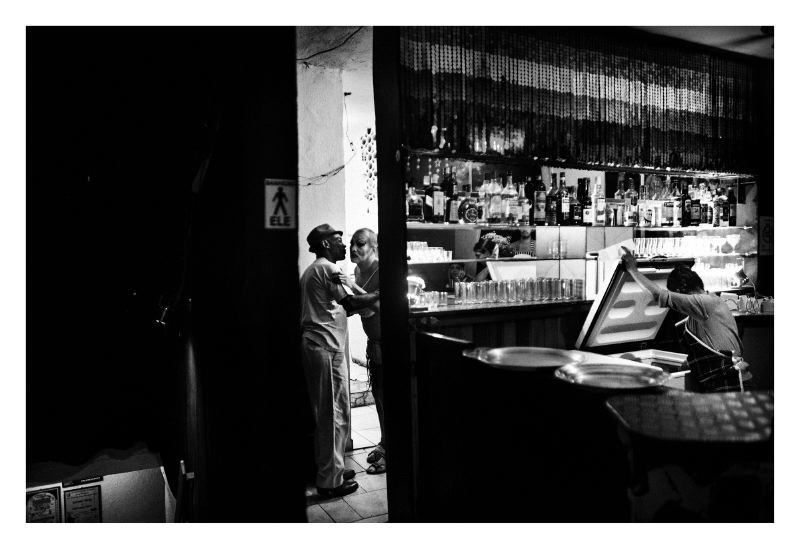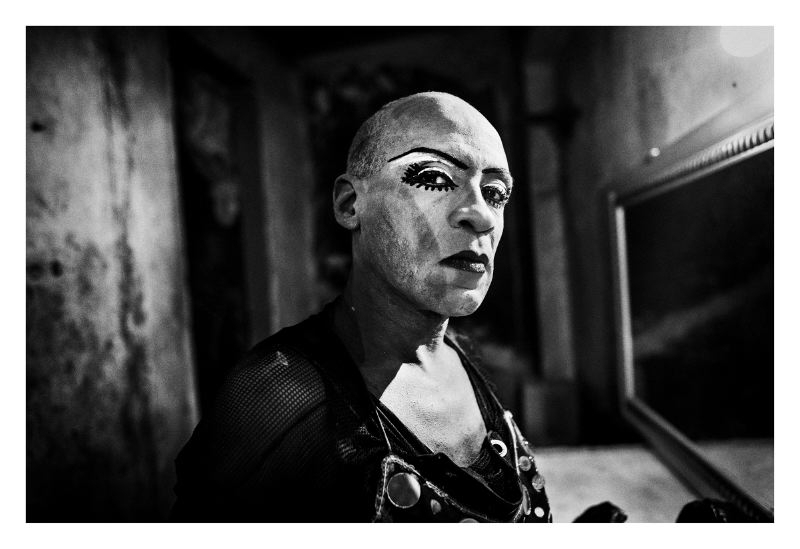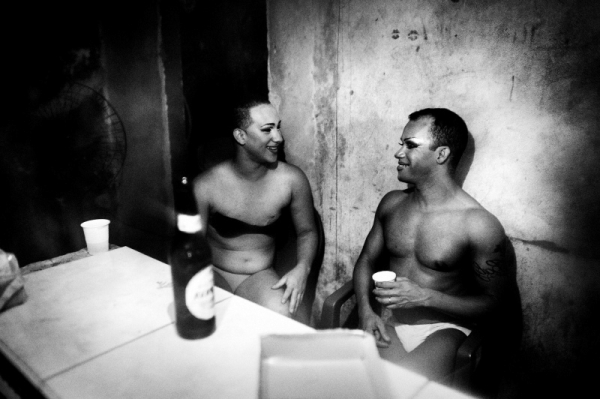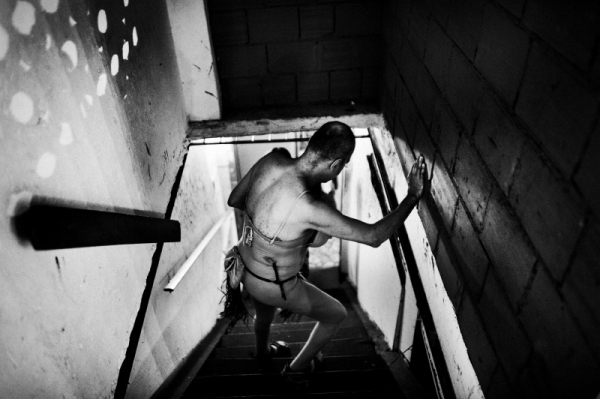PhotOn Festival
Pep Bonet
There are relatively few activist groups in Brazil that encompass the whole range of alternative sexualities and genders. Within these mixed groups, transsexuals tend to distinguish themselves from transvestites, hence the increasing use of the term “GLBTT”–Gay, Lesbian, Bisexual, Transvestite, and Transsexual. The grievous social and political situation of transgender people in Brazil could improve gradually if there were among them more doctors, lawyers and other professionals. However, added to the discrimination that limits their education level, most transvestites do not seem willing to make the sacrifices required to achieve a college education. That majority apparently believes that this would also involve the sacrifice of the most important years of their life while beautiful woman. Unlike female sex workers which have a variety of options to practice their profession (the street, clubs and brothels or through advertisements) transvestites often work on the streets and in menial brothels, known as “Privés“ . In them, her pimp is usually a small dealer, called ‘cafetão’, or another transvestite or transsexual called ‘cafetina’. The cafetina will charge for the rent of the room in the brothel, for the food and will get sure to keepthe transvestite active. Often cafetinas send transvestites to other pimps in Sao Paulo and Rio de Janeiro, to work, to have massive hormone treatments and undergo physical transformations with the injection of silicone, breast implants and other ways of plastic surgery. Some transvestites, especially those engaged in sexual activities, go on to become “bombardeiras”, experts in injecting industrial silicone in other transgender’s bodies. Transforming gluteus, legs, breasts or faces, is a characteristic component of many transvestite’s lives, but the injection ofsilicone has numerous negative effects. The rejection by the immune system, the risk of passing the blood stream or reach vital organs, is a constant. Once transformed, Brazilian transvestites cafetinas are sent to Europe (mainly Italy, France, Switzerland, Germany, Spain and Portugal) where another pimp is responsible to prostitute and accommodate them until their debt has been satisfied. Once the loan is paid, which can be funded at a higher interest rate, the transvestite gains its freedom. If the transvestite has managed to avoid drug addiction, immunodeficiency virus (HIV) and path of violence, they have a good chance to go back to Brazil with enough money to buy a house and a vehicle. Normally, during their European stay they usually send money to his parents, the same who once rejected them. Transvestites clients are men, mainly married, considered “normal“ in public and who take a passive role in sexual relationships. AIDS experts consider transgender prostitution in Brazil is an important route of infection: the transvestite transmit HIV to their clients and customers to their partner. Most of the new Brazilian cases of HIV infection correspond to both gay and straight young couples. Besides being exposed to health risks, transgender prostitutes working on the streets are constant victims of police violence, clients, pedestrians and sometimes pimps. The attacks to which they are subjected go from intimidation or beatings to torture and shootings. Some groups of men consider a fun beating up transvestites or drive-by shootings. Similarly, some private clients enjoy taking sadistic behavior. In large cities, those involved in street prostitution are often required to pay a fixed weekly fee in order to work. Paying, the sex worker becomes entitled to work in a sector whose membership pimp in question is recognized. In return for that commitment, it ensures protection against harassment from other pimps and sometimes against police action. Women sexual workers often have a male pimp, a cafetão, transvestites and transsexuals normally a female pimp, the cafetina. Although the relationship between the sex worker and cafetão is essentially based on fear and intimidation, cafetina relation is often quite different. In many cases, she provides some orientation and emotional support, acting as a madrinha (godmother) especially when transvestites come to the big cities of Sao Paulo and Rio de Janeiro from remote regions. The combined effects of discrimination, humiliation, lack of education and being away from a normal social life, makes impose enormous emotional effort Brazilian transgender people, especially those living as sex workers earn. The big social structural problems faced by the poor in Brazil, combined with the isolation and discrimination for transgender people, frustrate their aspirations of the basic recognition of human and legal rights. The pressures to fall into drug addiction and crime are huge, but transgender people are also particularly vulnerable to get AIDS, depression, cynicism and despair. To live a normal life means to superhuman display of courage and fortitude. Non governmental organizations, state and federal government agencies advise and assist with transgender people and support prevention programs against venereal diseases and AIDS.








